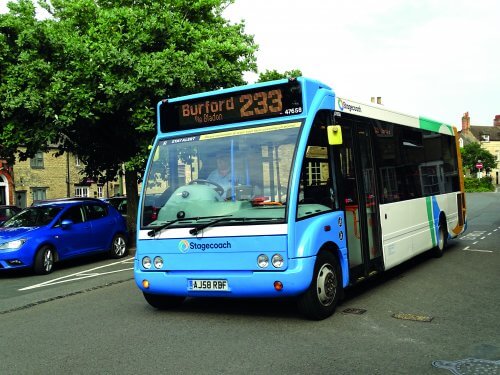
Stagecoach Group has published its trading results for the year ending 1 May 2021. The operator reports that revenue for the period was £928.2m (2020: £1,417.6m) and adjusted total operating profit £48.1m (2020: £119.7m), excluding Covid-19 grant income, which is reported as other operating income. Operating profit from its London bus business increased, underpinned by the contracted business model and reflecting contract wins. Unadjusted operating profit from continuing operations was £58.4m, down from £87.2m in 2020. Adjusted earnings per share were 2.7p, compared to 13.5p in 2020. Basic, unadjusted earnings per share were 6.1p (6.4p in 2020).
Given the continuing uncertainties the operator said it was not proposing any dividends in respect of the period but hoped to resume dividend payments in due course when supported by appropriate profit and cash flow generation.
Commenting, Martin Griffiths, Stagecoach Group Chief Executive, said: “We continue to make good progress in delivering our immediate priorities. Our focus is on protecting the health and well-being of our colleagues and customers; working in partnership with government to deliver the critical public transport the country and our communities need; and protecting the long-term sustainability of our business. Our continuing thoughts are with all of those affected by Covid-19, particularly those we have lost in our own Stagecoach family. We remain grateful to the incredible efforts of key workers and our people in keeping the country moving. More than ever, our services are critical to our regional economies, young people returning to education, and giving communities access to the vaccination programme. We are confident that there is a strong and positive future for public transport as we carefully follow the roadmap out of the Covid-19 pandemic. While it is difficult to reliably forecast the pace of recovery from the Covid-19 pandemic, we continue to see good long-term prospects for the business.
“The new National Bus Strategy for England, and other recent commitments by the Scottish and Welsh Governments, provide a huge opportunity to fundamentally transform travel in our communities. There is significant potential to deliver healthier and more prosperous places by moving away from towns and cities built around cars to prioritising easy-to-use sustainable public transport and active travel. Our investment in new state-of-the-art bus scheduling software will help ensure we have efficient networks that can best meet future travel patterns. We have good liquidity, strong fundamentals and excellent ESG credentials. We are proud to have finalised our new long-term sustainability strategy and to be a partner in the UK’s first all-electric bus city in Coventry. Our sustainability strategy is a critical part of the overall strategy for our business, setting out our vision through to 2035. Our plans are designed to make a difference for the people we employ, the communities we serve every day, and our environment and natural resources. Looking ahead, we see a positive outlook as our bus, coach and tram services play a critical role in tackling climate change, delivering economic recovery, and ensuring healthier and more connected communities.”

